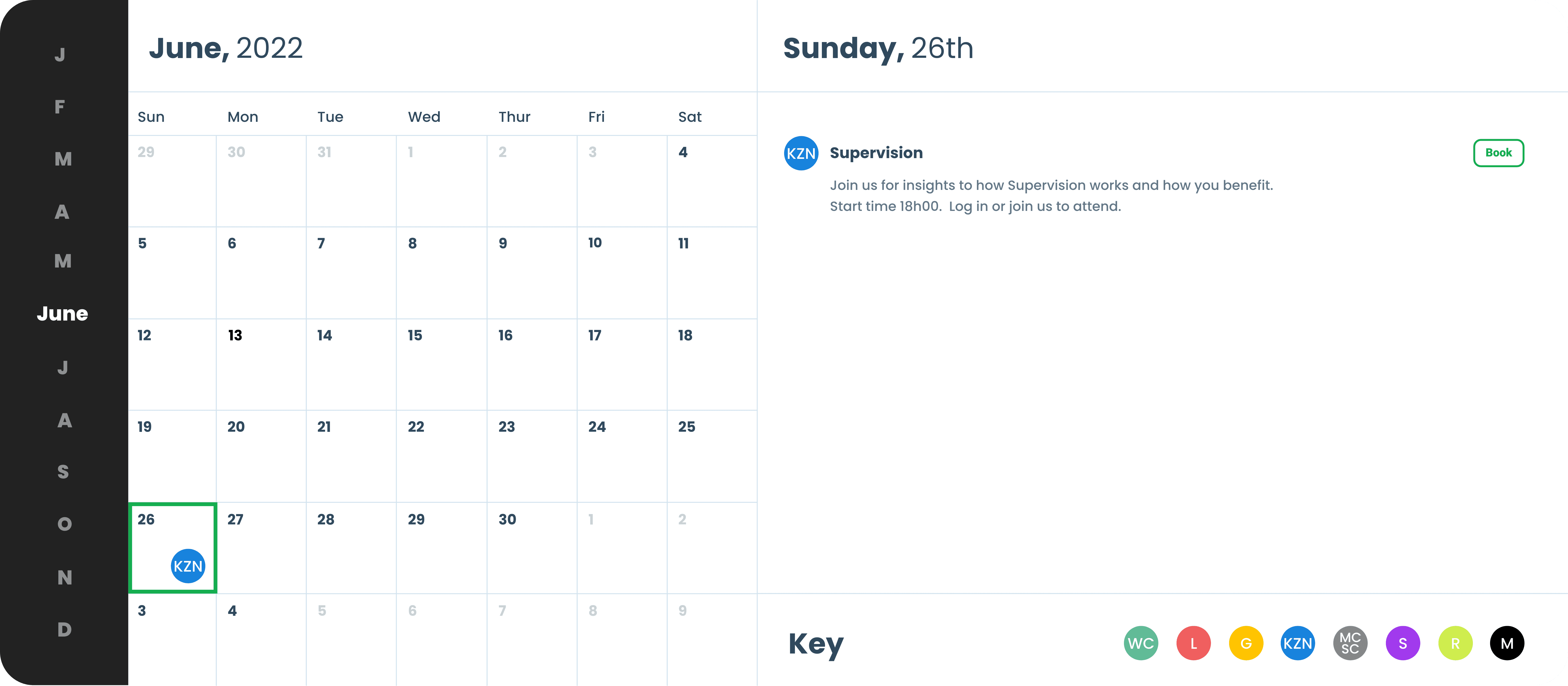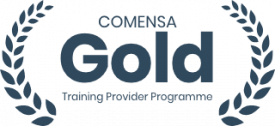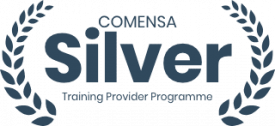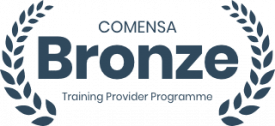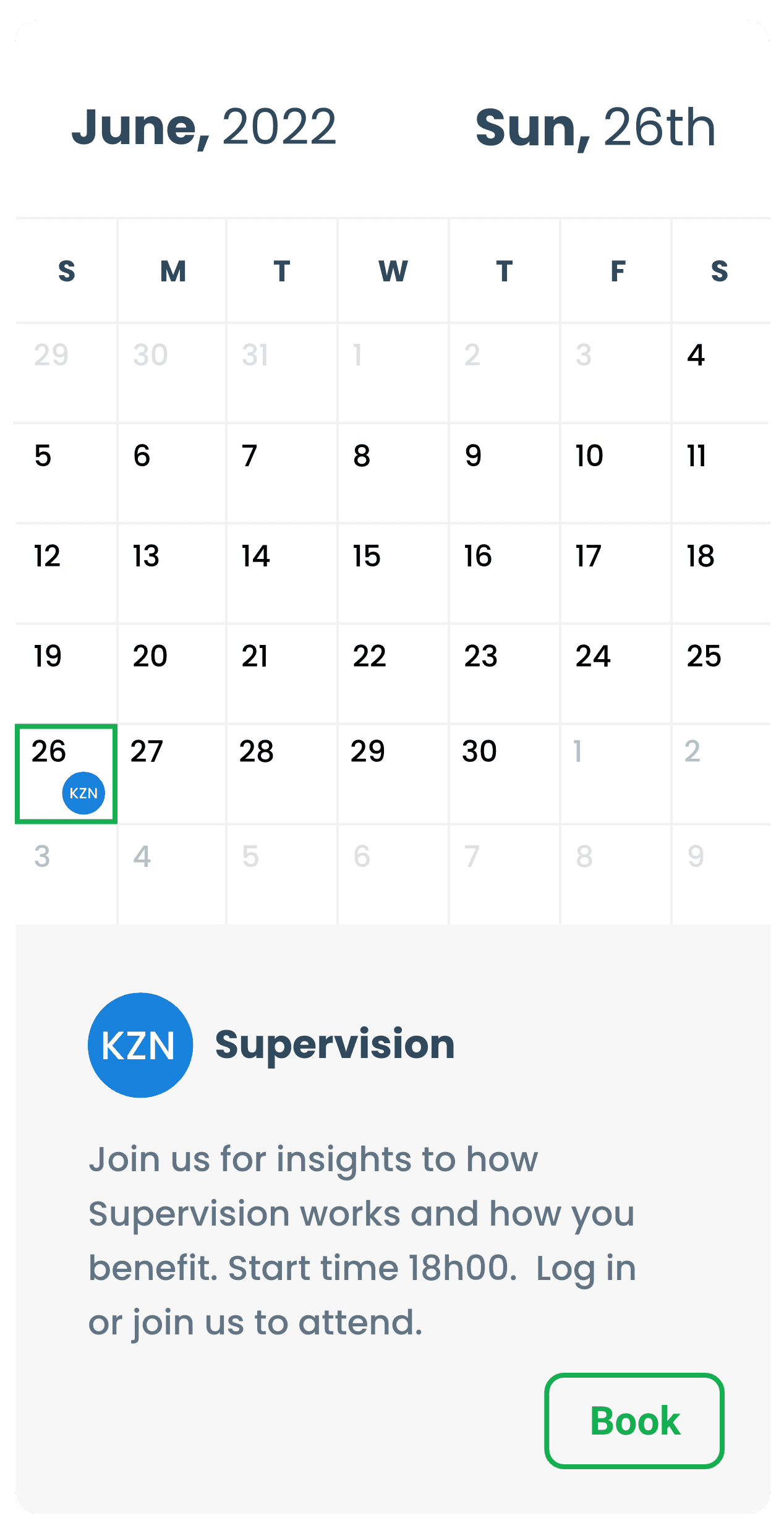WELCOME TO COMENSA
COACHES & MENTORS OF SOUTH AFRICA
increasing role in empowering future generations to realise their full potential.
To meet this need, COMENSA ensures that the highest standard of professional
service is provided by serving as the globally recognised, self-regulatory,
professional body for coaching and mentoring in South Africa.
ABOUT COMENSA
Inspire | Enlighten | Empower
We provide a platform for all stakeholders to engage, educate, exchange, and evolve in pursuit of best practice.
We support the ongoing evolution of coaches and mentors through the promotion
of diversity, inclusion, education, and networking through our community of practitioners.
We reinforce professionalism through a process of credentialing,
the maintenance of participation and continued education tracking.
COMENSA VALUES
Accountability | Integrity | Inclusivity | Professionalism | Innovation
Accountability As a Professional Body, we are accountable for our
actions and behaviours to deliver results for the benefit of all our stakeholders.
Integrity We commit to maintaining trust and credibility,
through honest and transparent undertakings that are congruent
with our values, policies and professional purpose.
Professionalism We deliver our services according to professional standards,
and commit to continuous improvement thereof to the benefit of all our stakeholders.
Inclusivity We welcome non judgemental diversity amongst our members
and the value it brings to the coaching and mentoring professions.
Innovation We embrace a change mindset, being open to new ideas,
improvements and technology.


COACHING VS MENTORING
Understanding the difference

COACHING
COMENSA defines coaching as “a professional, collaborative and outcomes-driven method of learning that seeks to develop an individual and raise self-awareness so that he or she might achieve specific goals and perform at a more effective level”.
COACHING VS MENTORING
Coaching is about creating change that enhances performance and learning. Coaches emphasise new competencies, learning and goal attainment, acting as a personal navigator for the journey of life, while always focusing on the needs of the client. Everything in coaching hinges on listening with the client’s agenda in mind.
Coaching has been shown to help leaders develop a clearer understanding of their roles and responsibilities. When leaders are more confident about what they need to do, they are better able to motivate employees and mobilise them for action.
The mentor focuses on the development of the learner and passing on personalised, domain-specific knowledge. Mentors help to set the agenda, with their primary aim to develop an individual or small group to learn more comprehensively from their day-to-day working experience.
Mentoring of recently-promoted managers within an organisation, for example, can create an atmosphere where people feel comfortable and acknowledged.
COACHING VS MENTORING
Coaching is about creating change that enhances performance and learning. Coaches emphasise new competencies, learning and goal attainment, acting as a personal navigator for the journey of life, while always focusing on the needs of the client. Everything in coaching hinges on listening with the client’s agenda in mind.
Coaching has been shown to help leaders develop a clearer understanding of their roles and responsibilities. When leaders are more confident about what they need to do, they are better able to motivate employees and mobilise them for action.
The mentor focuses on the development of the learner and passing on personalised, domain-specific knowledge. Mentors help to set the agenda, with their primary aim to develop an individual or small group to learn more comprehensively from their day-to-day working experience.
Mentoring of recently-promoted managers within an organisation, for example, can create an atmosphere where people feel comfortable and acknowledged.

MENTORING
COMENSA defines mentoring as “a partnership in which a mentee is assisted in making significant advances in knowledge, perspective and vision in order to develop their full potential; the mentor’s wisdom is utilised by the mentee to facilitate and enhance new learning and insight”.
COACHING VS MENTORING
The mentor focuses on the development of the learner and passing on personalised, domain-specific knowledge. Mentors help to set the agenda, with their primary aim to develop an individual or small group to learn more comprehensively from their day-to-day working experience.
Mentoring of recently-promoted managers within an organisation, for example, can create an atmosphere where people feel comfortable and acknowledged.
Coaching is about creating change that enhances performance and learning. Coaches emphasise new competencies, learning and goal attainment, acting as a personal navigator for the journey of life, while always focusing on the needs of the client. Everything in coaching hinges on listening with the client’s agenda in mind.
Coaching has been shown to help leaders develop a clearer understanding of their roles and responsibilities. When leaders are more confident about what they need to do, they are better able to motivate employees and mobilise them for action.
COACHING VS MENTORING
The mentor focuses on the development of the learner and passing on personalised, domain-specific knowledge. Mentors help to set the agenda, with their primary aim to develop an individual or small group to learn more comprehensively from their day-to-day working experience.
Mentoring of recently-promoted managers within an organisation, for example, can create an atmosphere where people feel comfortable and acknowledged.
Coaching is about creating change that enhances performance and learning. Coaches emphasise new competencies, learning and goal attainment, acting as a personal navigator for the journey of life, while always focusing on the needs of the client. Everything in coaching hinges on listening with the client’s agenda in mind.
Coaching has been shown to help leaders develop a clearer understanding of their roles and responsibilities. When leaders are more confident about what they need to do, they are better able to motivate employees and mobilise them for action.
The benefits of JOINING COMENSA
As you progress from the first step of registering with COMENSA as a Student or Ordinary Member, you will enjoy an increasing array of benefits.
Find more information on which category of membership you qualify for as well as the detail of our very affordable membership fees on our Membership page.

Training Provider Programme (TPP)
How do Training Provider Programmes work, and why are they vital to the coaching and mentoring professions?
The extensive array of COMENSA approved Training Provider Programmes are vetted to strict standards to further the development of coaches and mentors, helping them maintain their CPD points as well as to stay abreast of rapidly developing industry knowledge.
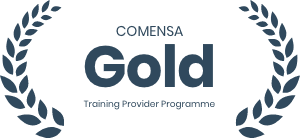
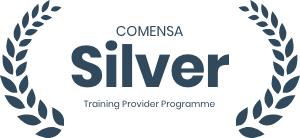
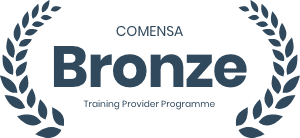
EVENT CALENDAR
COMENSA holds a diverse range of events each month, providing insight to the latest coaching and mentoring trends and developments, and the opportunity to earn CPD points.
COMENSA prides itself on the diverse range of events held every month. Providing insight to the latest coaching and mentoring trends and developments.
Each event is hosted by one of our four regional chapters: Gauteng, KwaZulu-Natal, Western Cape, and Limpopo, or by the specialised portfolio committees: Supervision, Marketing, Membership Criteria and Standards of Competence (MCSC), Research, or Social and Ethics.
The majority of our events are presently hosted online and are available free to everyone registered with COMENSA. If you are not yet registered, join us now to have access to this invaluable resource.
Face to face networking events will be returned to as soon as appropriate and will be held in each of the regions. Attendance is free for members and attracts a small fee for non-members.
Newsletter

|
|
|

Exciting times ahead with our Website!
We’ve made good progress on updating our website. We’ve identified a list of key areas to address, and we’re currently looking for providers to assist us.
The changes we’re making will make it easier for members to find the information they need and to collaborate on projects.
Google Drive Migration
We’ve also defined file structures and will be reaching out to the portfolio heads to start assisting in implementing this. We’re going to provide support documentation and training links to assist in the process.
We plan to move COMENSA to the cloud for meetings, documents, and file sharing. This will make it easier for members to access their files from anywhere, and it will also improve security.
Thank you for your patience as we make these changes. I’ll be providing more updates in the coming weeks.
If you have any questions or feedback, please don’t hesitate to reach out to me.
Lloyd Poleman
Chair of IT
it@comensa.org.za

MCSC – Membership Criteria & Standards of Competence Committee
Taking Charge of your Professional Journey
‘Celebrate what you have accomplished, but raise the bar a little higher each time you succeed’, Mia Hamm
As a Coach or Mentor, how Professional are we? How responsible are we? How does our responsibility relate to our Profession as Coach or Mentor?
We have high expectations from our clients, should we not therefore also have high expectations of ourselves?
In saying this, when it comes to renewal of COMENSA membership, this often is overlooked or forgotten, and then it causes extra administrative tasks to get the membership re-instated.
And recently this has happened to members holding a Professional Designation, and the 3-year cycle is complete and the renewal is due, and when we send out a notification, often receive an unkind reply. The responsibility is with YOU as a member to check when your renewal is due.
And a very important requirement for renewal of a Credential, is that your CPD points is up to date. Please take a couple of minutes to review the CPD Policy at https://www.comensa.org.za/wp-content/uploads/2023/03/MCSC-Policy-Criteria-05-Continous-Professional-Development-March-2023.pdf. And one of the important requirements is the 12 points for Supervision. We have addressed CPD on various occasions and have urged members to update it regularly and not wait for the time of renewal. The fact is that CPD is not only for renewal, but should be seen as YOUR growth, learning and development as a Coach or Mentor.
I therefore urge you to check your Membership expiry date, your Credential expiry date, and your CPD points status.
MCSC Webinars
19 September 2023 @ 13H00-14H00 – The importance of Emotional Intelligence in the Workplace, presented by Gizelle McIntyre.
Recently Credentialed Members
Congratulations to our Credentialed Members who have renewed their Professional Designation during the month of August.
Mandy Johnson – COMENSA Master Coach
Philip Collier – COMENSA Senior Coach
Rosa Zimmerman – COMENSA Credentialed Coach
We would like to see you start the process this month to be Credentialed. Remember, you are doing it for YOU.
If you need assistance or would like encouragement to become Credentialed, email me at mcsc@comensa.org.za
André Retief
MCSC Chair

|
|

|
|

|
|

|
|
|

|
|
|
|
|
|
|
|
|
|
|
WELCOME TO COMENSA
COACHES & MENTORS OF SOUTH AFRICA
In a world of constant change, coaching and mentoring are playing an increasing role in empowering future generations to realise their full potential.
ABOUT COMENSA
Inspire | Enlighten | Empower
We provide a platform for all stakeholders to engage, educate, exchange, and evolve in pursuit of best practice.
We support the ongoing evolution of coaches and mentors through the promotion of diversity, inclusion, education, and networking through our community of practitioners.
We reinforce professionalism through a process of credentialing, the maintenance of participation and continued education tracking.
COACHING VS MENTORING
Understanding
the difference

COACHING
COACHING VS MENTORING
Coaching is about creating change that enhances performance and learning. Coaches emphasise new competencies, learning and goal attainment, acting as a personal navigator for the journey of life, while always focusing on the needs of the client. Everything in coaching hinges on listening with the client’s agenda in mind.
Coaching has been shown to help leaders develop a clearer understanding of their roles and responsibilities. When leaders are more confident about what they need to do, they are better able to motivate employees and mobilise them for action.
The mentor focuses on the development of the learner and passing on personalised, domain-specific knowledge. Mentors help to set the agenda, with their primary aim to develop an individual or small group to learn more comprehensively from their day-to-day working experience.
Mentoring of recently-promoted managers within an organisation, for example, can create an atmosphere where people feel comfortable and acknowledged.
COACHING VS MENTORING
Coaching is about creating change that enhances performance and learning. Coaches emphasise new competencies, learning and goal attainment, acting as a personal navigator for the journey of life, while always focusing on the needs of the client. Everything in coaching hinges on listening with the client’s agenda in mind.
Coaching has been shown to help leaders develop a clearer understanding of their roles and responsibilities. When leaders are more confident about what they need to do, they are better able to motivate employees and mobilise them for action.
The mentor focuses on the development of the learner and passing on personalised, domain-specific knowledge. Mentors help to set the agenda, with their primary aim to develop an individual or small group to learn more comprehensively from their day-to-day working experience.
Mentoring of recently-promoted managers within an organisation, for example, can create an atmosphere where people feel comfortable and acknowledged.
COACHING VS MENTORING
Understanding
the difference

MENTORING
COACHING VS MENTORING
The mentor focuses on the development of the learner and passing on personalised, domain-specific knowledge. Mentors help to set the agenda, with their primary aim to develop an individual or small group to learn more comprehensively from their day-to-day working experience.
Mentoring of recently-promoted managers within an organisation, for example, can create an atmosphere where people feel comfortable and acknowledged.
Coaching is about creating change that enhances performance and learning. Coaches emphasise new competencies, learning and goal attainment, acting as a personal navigator for the journey of life, while always focusing on the needs of the client. Everything in coaching hinges on listening with the client’s agenda in mind.
Coaching has been shown to help leaders develop a clearer understanding of their roles and responsibilities. When leaders are more confident about what they need to do, they are better able to motivate employees and mobilise them for action.
COACHING VS MENTORING
The mentor focuses on the development of the learner and passing on personalised, domain-specific knowledge. Mentors help to set the agenda, with their primary aim to develop an individual or small group to learn more comprehensively from their day-to-day working experience.
Mentoring of recently-promoted managers within an organisation, for example, can create an atmosphere where people feel comfortable and acknowledged.
Coaching is about creating change that enhances performance and learning. Coaches emphasise new competencies, learning and goal attainment, acting as a personal navigator for the journey of life, while always focusing on the needs of the client. Everything in coaching hinges on listening with the client’s agenda in mind.
Coaching has been shown to help leaders develop a clearer understanding of their roles and responsibilities. When leaders are more confident about what they need to do, they are better able to motivate employees and mobilise them for action.
The benefits of
JOINING COMENSA
As you progress from the first step of registering with COMENSA as a Student or Ordinary Member, you will enjoy an increasing array of benefits.
Find more information on which category of membership you qualify for as well as the detail of our very affordable membership fees on our Membership page.
Training Provider
Programme (TPP)
How do Training Provider Programmes work, and why are they vital to the coaching and mentoring professions?
The extensive array of COMENSA approved Training Provider Programmes are vetted to strict standards to further the development of coaches and mentors, helping them maintain their CPD points as well as to stay abreast of rapidly developing industry knowledge.
EVENT CALENDAR
COMENSA holds a diverse range of events each month, providing insight to the latest coaching and mentoring trends and developments, and the opportunity to earn CPD points.
COMENSA prides itself on the diverse range of events held every month. Providing insight to the latest coaching and mentoring trends and developments.
Each event is hosted by one of our four regional chapters: Gauteng, KwaZulu-Natal, Western Cape, and Limpopo, or by the specialised portfolio committees: Supervision, Marketing, Membership Criteria and Standards of Competence (MCSC), Research, or Social and Ethics.
The majority of our events are presently hosted online and are available free to everyone registered with COMENSA. If you are not yet registered, join us now to have access to this invaluable resource.
Face to face networking events will be returned to as soon as appropriate and will be held in each of the regions. Attendance is free for members and attracts a small fee for non-members.

|
|

September saw a lot of changes in COMENSA bringing in the new Board members and saying farewell to members who have served our community over the last few years in a variety of capacities. We are grateful to Mokadi Max Mathye our past president, Andre Retief the Chair of Membership Criteria and Standards of Competence and Jeremy Clampett the Chair of Supervision.
With change comes challenges and opportunities. Expect our new board to go through the settling in process, getting to share our strengths and finding ways to make the sum of the whole greater than the individual parts. What you can also expect is that you will see new energy and commitment as we go forward into 2024.
What we would like is to see the same energy coming from within COMENSA, creating succession planning for our future office bearers and leaders. The organisation belongs to all of us and it needs all of us to bring our gifts.
The famous American saying attributed to John F Kennedy is:
“Ask not what your country can do for you, ask what you can do for your country.”
I am now asking the question:
Ask not what COMENSA can do for you, ask what you can do for COMENSA.
The future is yours you can create it, or you can criticise it! The choice is yours.
Veronica Wantenaar

|
|
|
|
|
|
|
|

Navigating the Online Coaching Revolution
In a pre-COVID world, my coaching practice centered primarily on in-person coaching, with just a few online clients. Thus, when the pandemic struck, uncertainty loomed, since both my coaching clients and I were novices with online coaching. But swiftly the digital revolution, catapulted online platforms such as Microsoft Teams, Google Meet, Skype, and Zoom to the forefront of our coaching landscape.
Online coaching, however, presents its own set of distinct issues as compared to in-person coaching. But fear not when research is near. Enter Meyer, H.’s (2023) paper, “What is the Best Practice in Online Coaching,” which sheds light on critical elements for online coaches. Among the critical contractual issues she highlights, for example, is what happens if a session abruptly disconnects. Do you have a plan B? Does your client want to see your face? What kind of screen backdrop—real, blurred, or virtual—works best in a coaching environment? And, of course, the fundamentals: fast internet, superb lighting, great sound quality, and a distraction-free environment.
Meyer also delves further into the complexity of online coaching strategies. In-person coaching silence, for example, is not the same as online silence. Furthermore, the research emphasizes the heightened attention required by coaches when they can only see or hear their client’s face or voice, relying on these clues to guide generative coaching conversations.
Meyer’s article is a must-read! It offers vital insights and best practices for navigating the ever-evolving landscape of coaching in the digital age.
Meyer, H. (2023) ‘What is Best Practice in Online Coaching?’, International Journal of Evidence Based Coaching and Mentoring, (S17), pp.77-90. DOI: 10.24384/srgt-nk21 (Accessed: 3 October 2023).
https://radar.brookes.ac.uk/radar/items/d2928325-c2a6-40df-97de-2714d162f74e/1/
By Rosieda Shabodien,
COMENSA Research Committee Member

|
|


|
|
| ||
|
|

COMENSA Professional Conduct Committee
Newsletter: October 2023
Ilana Steyn
Professional Conduct Investigation holds significant importance within coaching, as it forms the foundation for facilitating significant progress, growth and development.
It entails a comprehensive process of understanding the unique situation, pinpointing obstacles, and crafting tailored solutions. However, it’s crucial to emphasize that conducting a high-quality investigation is not a swift activity. It necessitates a deliberate investment of time and meticulous attention.
One of the barriers faced is inefficient resources (calendars to meet up; availability & various viewpoints) – it takes time to gather the facts and compile it in a fair and unbiased manner. With reporting we always strive to be well articulated and precise, thereby ensuring the necessary outcome or corrective action to be taken.
Quality is essential to satisfy all parties and make sure the necessary impact is achieved in the long run. The benefit of thorough investigations provides a solid foundation for informed decision-making, problem-solving and continuous improvement. It helps to develop more effective strategies or solutions. In future we wish to address some of the other common barriers e.g. language & cultural diversity to create awareness, and effective communication thus circumventing misunderstanding where possible.
We have room for one more volunteer on our committee. Should you wish to join please do not hesitate to contact us at the following email address: pcc@comensa.org.za

|
|

Where There Is No Will, There Is? …Hold That Thought
If you have not been hiding under a rock, you probably have heard or read somewhere that September is wills month. By now we have established that creating a will is an important element of estate planning and why. But is the process of creating a will as simple as ABC?
Yes, writing a will can be as simple as ABC if you know what makes up a legally valid will. Simple wills are far less common than complex wills. However, if you only have a few assets and a small family to reward, a simple will may be sufficient for you. If you have a large estate and many people are being awarded from your estate, a complex will may be sufficient for you.
Larger estates may make the process of will formation daunting. This is why you may need to consult an attorney who specialises in estate planning to ensure that your will is legally valid and comprehensive. Whilst it is common and good to consult with an attorney, many people forget to consult with financial professionals such as accountants. Let us now explore the pros of having to include an accountant in your estate planning to help you decide which options are best for you.
Failure to examine the financial implications of your will might have serious ramifications for both your estate and your beneficiaries. Some of the financial aspects that accounts can assist with are as follows:
- If your beneficiaries receive assets with high capital gains or income tax liabilities, they may face unanticipated tax repercussions. Tax planning can assist to reduce these burdens.
- Failing to establish your estate with asset protection in mind may expose your assets to creditors or legal claims. Proper planning can assist in protecting your assets from such threats.
- If your estate does not have enough liquid assets to cover debts, taxes, and bills, your heirs may be forced to sell valued assets, such as family homes or companies, for below-market prices.
- Without a lifetime gifting strategy, you may miss out on opportunities to give assets to loved ones in a tax-efficient way. Gifting can assist in lowering your taxed estate while also benefiting your beneficiaries.
In conclusion, accountants provide tax planning and financial management expertise to the estate planning process. Their involvement can help ensure that your estate plan is tax-effective, lawful, and in line with your financial goals. It does not matter the size of your estate, a full and effective estate plan typically necessitates collaboration between accountants and estate planning attorneys.
Love your loved ones even after you’re gone by writing a will that mitigates all types of risk because where there is no will, there is mostly no peace.
|
|
|
|
|
|
|
|
Like if you enjoyed this month’s Newsflash
Like if you enjoyed this month's Newsflash
Like if you enjoyed this
month’s Newsflash


